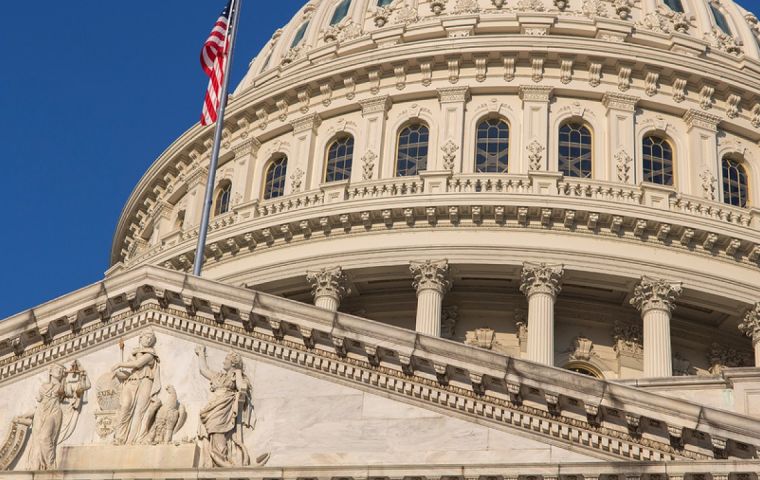MercoPress. South Atlantic News Agency
US Senate limits internet surveillance tools under the national security umbrella
 Senate leaders agreed to allow votes on the amendments as part of a compromise as they sought to renew the surveillance rules, fiercely opposed by privacy advocates
Senate leaders agreed to allow votes on the amendments as part of a compromise as they sought to renew the surveillance rules, fiercely opposed by privacy advocates The US Senate narrowly blocked an amendment on Wednesday that would have prevented law enforcement from collecting information on Americans' Internet habits without a warrant, as the Senate moved toward a reauthorization of divisive surveillance tools.
The Senate defeated the amendment sponsored by Republican Senator Steve Daines and Democrat Ron Wyden by 59-37, just short of the 60 votes that would have included it in legislation to renew three surveillance tools used in national security investigations that expired two months ago.
Senators voted 77 to 19 to back another amendment, sponsored by Republican Senator Mike Lee and Democrat Patrick Leahy, to allow outside legal analysts to serve as independent advisers for the court that oversees surveillance-related warrants.
Senate leaders agreed to allow votes on the amendments as part of a compromise as they sought to renew the surveillance rules, which are fiercely opposed by privacy advocates but defended by intelligence agencies as essential to catching foreign spies and combating extremism.
The authorities, part of the Foreign Intelligence Surveillance Act (Fisa), expired on March 15. The House of Representatives had passed a bipartisan compromise Bill that would have extended them, but the measure failed in the Senate as lawmakers scrambled out of Washington to escape the coronavirus pandemic.
On Thursday, the Senate will consider a third amendment, offered by Republican Senator Rand Paul, that would bar the Fisa court from authorizing surveillance of a US citizen.
Senators are then due to vote on the amended legislation renewing the expired intelligence authorities. But since it has been amended, the legislation must be considered by the House of Representatives before it can be sent to the White House for President Donald Trump to veto or sign into law.
Mr Trump has not yet announced his position on the Bill. He had been a critic of Fisa, convinced that surveillance tools covered by the legislation were improperly used against his 2016 campaign.
But his opposition seemed to have eased in March after Attorney-General William Barr wrote the Bill renewing the Fisa authorization with Republicans and Democrats that was passed by the House, including reforms that addressed Republican concerns about surveillance of Mr Trump's campaign.




Top Comments
Disclaimer & comment rulesCommenting for this story is now closed.
If you have a Facebook account, become a fan and comment on our Facebook Page!